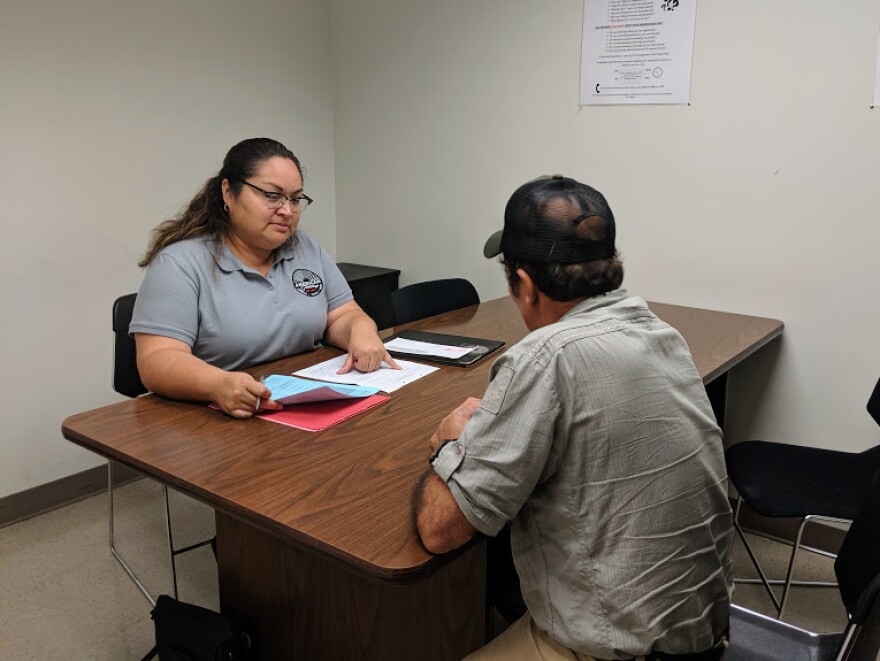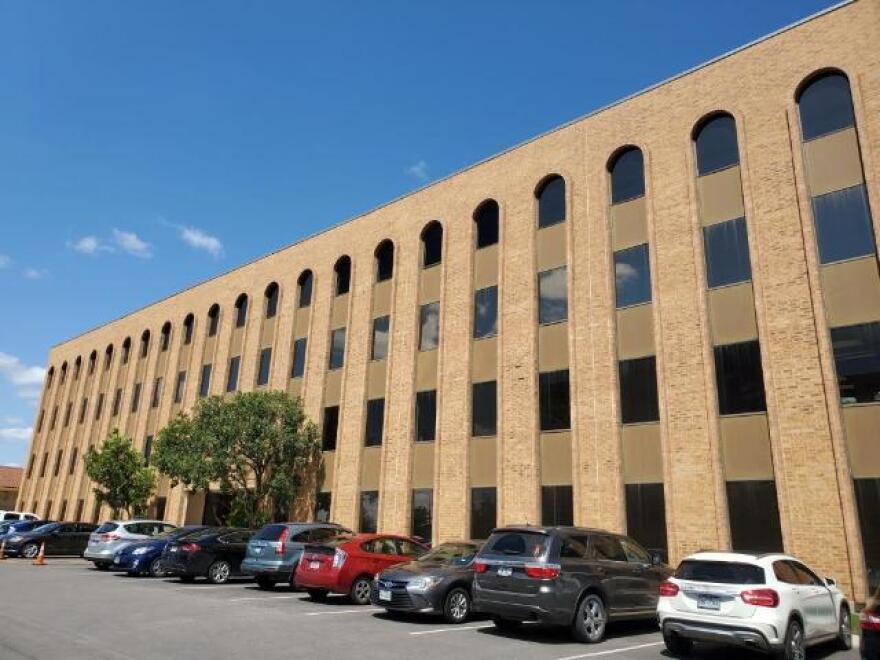Big white tent complexes in two Texas border towns are drawing attention. These are temporary courtrooms, the latest effort by the Trump administration to more quickly work through thousands of migrant asylum cases.
More than four dozen migrants made their way across the border from Mexico to court hearings in Laredo, Texas, on Monday.
Elizabeth Almanza is with American Gateways, a group that offers legal assistance to migrants. She said those with hearings are escorted across the border and funneled into a modular building that serves as one part of the courtroom.
"We have moms, dads, whole family units," Almanza said. "Then the judge goes through their rights: 'You have the right to an attorney, you have a right to ask for asylum,' (All of) their rights as a group."

The judge presiding over this ad-hoc courtroom is more than 150 miles away from Laredo, in San Antonio. Judge Yvonne Gonzalez is one of nearly two dozen judges in Texas hearing these cases via teleconference. Neither the public nor reporters are allowed in the temporary border courts, but are allowed in the San Antonio courtrooms where the judge is located.
This is a new type of court created to hear cases from asylum seekers from migrants forced to stay in Mexico by the Trump Administration's Migrant Protection Protocols, also referred to as the "Remain in Mexico" policy. More than 40,000 migrants are waiting in Mexico for their day in U.S. immigration court. More than 6,000 of those were turned away at the point of entry in Laredo.
Acting Citizenship and Immigration Services Director Ken Cuccinelli told NPR this process is being implemented along the border from California to Texas.
“We are still in the relatively early stages and adding on Brownsville and Laredo. And we want this to work. We will make it work," Cuccinelli said.
But critics say this new approach is making it more difficult for people to seek asylum. More than twenty people on Judge Gonzalez's docket on Monday didn't show up in court. Of those who did, only a handful had a lawyer, and more than half told the judge they're afraid for their lives in Mexico.
There are reports from migrants of assaults and kidnappings and run-ins with drug cartels and human traffickers.
Almanza said migrants forced to stay in Mexico also have few resources.
"You have these individuals that don't have a home in Nuevo Laredo," Almanza said. "How do they eat? Make money? They might have come with some money, but they probably paid someone to get here. They probably paid for somewhere to stay just to get to their hearing date."
The migrants in Gonzales's court will have to figure all that out for at least another month. At Monday's hearing she scheduled most of the asylum seekers for their next hearing, a month away, on Oct. 16.
Bonnie Petrie can be reached at Bonnie@TPR.org and on Twitter at @kbonniepetrie.




